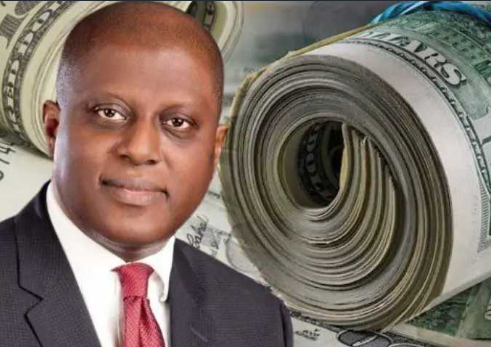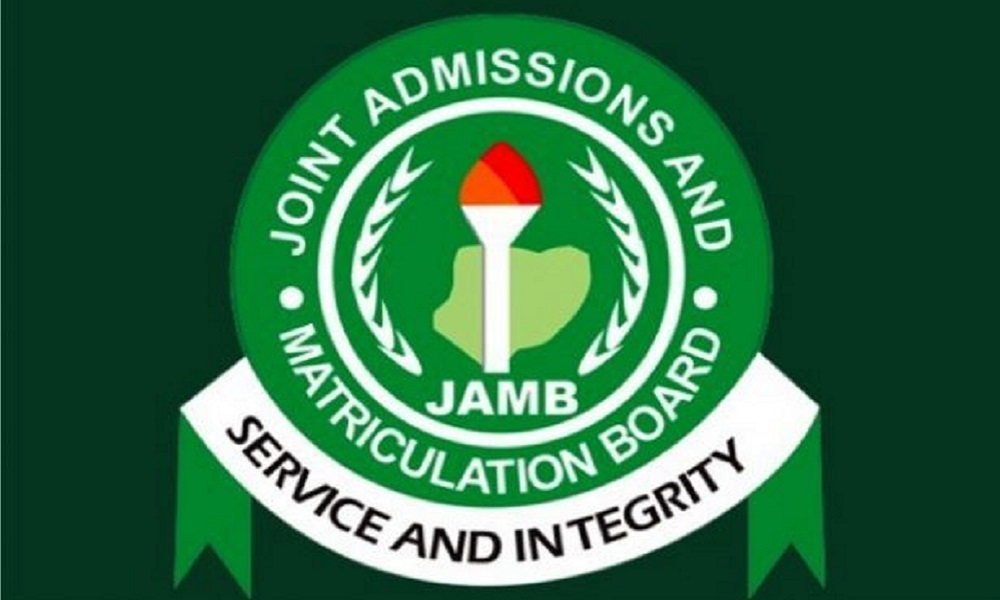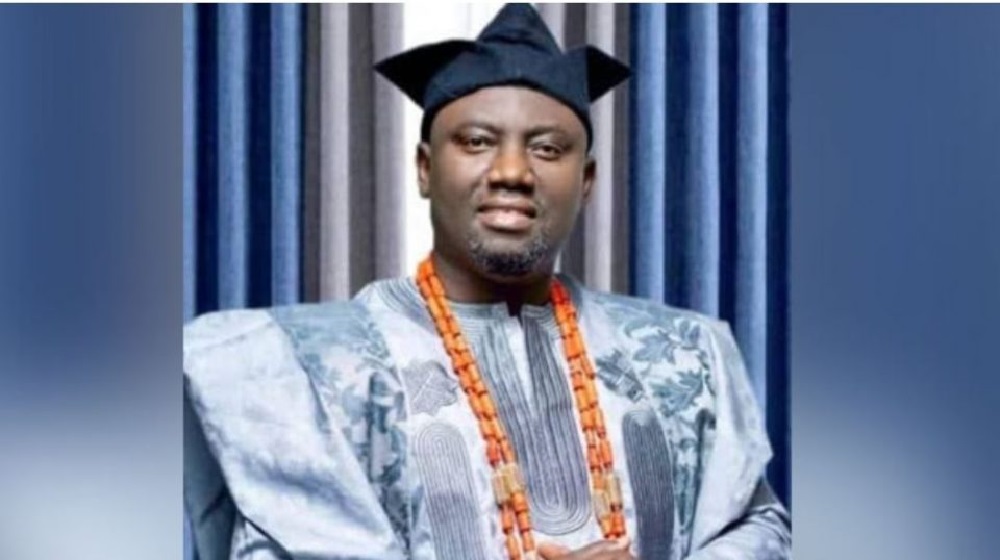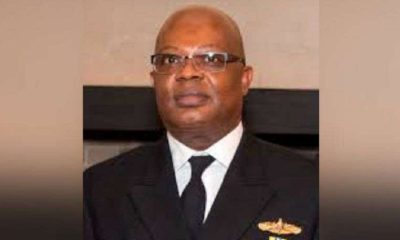News
Give Account For Missing N100bn Dirty Notes, Others, SERAP Tells CBN Gov

By Kayode Sanni-Arewa
The Socio-Economic Rights and Accountability Project has urged the Governor of the Central Bank of Nigeria, Mr Olayemi Cardoso, “to account for and explain the whereabouts of the over N100 billion ‘dirty and bad notes’ and ‘other large sum of cash awaiting examination’ which are kept in various branches of the CBN.”
In a letter dated June 29, 2024, and signed by its Deputy Director, Kolawole Oluwadare, SERAP said the allegations are documented in the latest annual report recently published by the Auditor-General of the Federation.
The organisation said these allegations by the Auditor-General suggest grave violations of public trust, the provisions of the Nigerian Constitution, the CBN Act, and national and international anti-corruption obligations.
SERAP also asked Cardoso to “explain the whereabouts of the N7.2 billion budgeted for the construction of the CBN Dutse branch in 2010 and the N4.8 billion budgeted for the renovation of the CBN Abeokuta branch in 2009, and to publish the names of the contractors who collected the money but failed to complete the projects.”
SERAP urged the CBN boss “to explain the whereabouts of the allegedly missing outstanding loan of N1.2 billion granted to the Enugu State Government in 2015 and the outstanding loan of N1.9 billion granted to the Anambra State Government between 2015 and 2016 and to fully recover and remit the public funds to the treasury.”
It also asked him “to refer these grave violations of the Nigerian Constitution 1999 (as amended), the CBN Act and the country’s national and international anti-corruption obligations to appropriate anti-corruption agencies for investigation and prosecution, as appropriate, and the recovery of the public funds.”
The letter read in part, “We would be grateful if the recommended measures are taken within seven days of the receipt and/or publication of this letter. If we have not heard from you by then, SERAP shall take all appropriate legal actions to compel you and the CBN to comply with our request in the public interest.
“Explaining the whereabouts of the missing public funds, publishing the names of those suspected to be responsible and ensuring that they are brought to justice and the full recovery of any missing public funds would serve the public interest and end the impunity of perpetrators.
“According to the recently published 2020 audited report by the Auditor General of the Federation (AGF), the Central Bank of Nigeria (CBN) has since 2017 been keeping over N100 billion ‘dirty and bad notes’, and other large sums of cash awaiting examination in various branches of the CBN.
“The Auditor-General fears that the ‘dirty and bad notes’ initially planned to be destroyed may have been ‘diverted and re-injected into the economy.’
“The CBN in August 2010 also reportedly budgeted N7.2 billion [N7,286,500,476.76] for the construction of the Dutse branch building. The Dutse branch was due to be completed in November 2012 but the contractors have failed to complete the project.
“The Auditor-General is concerned that the project may have been ‘awarded to an incompetent contractor,’ and wants the ‘job completed without further delay.’
‘The CBN in 2009 reportedly budgeted N4.8 billion [N4,812,608,028.10] for the renovation of the CBN Abeokuta branch. The Abeokuta branch was due to be completed in 2012 but the contractors have failed to complete the project.
There is no significant renovation work on the site, several years after the proposed completion date. The Auditor-General is concerned that the project may have been ‘awarded to an incompetent contractor,’ and wants the ‘job completed without further delay.’”
SERAP said these violations also reflect a “failure of CBN accountability more generally and are directly linked to the institution’s persistent failure to comply with its Act and to uphold the principles of transparency and accountability.”
It added, “The CBN also reportedly failed to account for the missing outstanding loan of N1.2 billion granted to the Enugu State Government in 2015 and the outstanding loan of N1.9 billion granted to the Anambra State Government between 2015 and 2016. The Auditor-General fears the public funds may have been diverted. He wants the money fully recovered and remitted to the treasury.
“Paragraph 708 of the Financial Regulations 2009 provides that, ‘on no account should payment be made for services not yet performed or for goods not yet supplied.’
Section 35(2) of the Public Procurement Act 2007 provides that, ‘once a mobilization fee has been paid to any supplier or contractor, no further payment shall be made to the supplier or contractor without an interim performance certificate
Section 16(6) of the Public Procurement Act states that ‘all bidders shall possess the necessary professional and technical qualifications to carry out particular procurements; the financial capacity and adequate personnel to perform the obligations of the procurement contracts.’”
SERAP asserted that these alleged violations have seriously undermined the ability of the CBN to effectively discharge its statutory functions and the public trust and confidence in the bank.
According to the organisation, the apex bank ought to be committed to transparency and accountability in its operations.
It added, “SERAP notes that Section 15(5) of the Nigerian Constitution requires public institutions to abolish all corrupt practices and abuse of power.” Section 13 of the Constitution imposes a clear responsibility on the CBN to conform to, observe and apply the provisions of Chapter 2 of the Constitution.
Paragraph 3112(ii) of the Financial Regulations 2009 provides that, “Where a public officer fails to account for government revenue, such officer shall be surcharged for the full amount involved and such officer shall be handed over to either the Economic and Financial Crimes Commission (EFCC) or the Independent Corrupt Practices and Other Related Offences Commission (ICPC).
“Nigeria has made legally binding commitments under the UN Convention against Corruption to ensure accountability in the management of public resources. Articles 5 and 9 of the UN Convention against Corruption also impose legal obligations on the CBN to ensure proper management of public affairs and public funds.
“Nigerians have the right to know the whereabouts of the public funds. Taking the recommended measures would advance the right of Nigerians to restitution, compensation and guarantee of non-repetition.
“The Nigerian Constitution, Freedom of Information Act, and the country’s anti-corruption and human rights obligations rest on the principle that citizens should have access to information regarding their public institutions’ activities.”
News
JAMB uncovers 142 Kano varsity applicants with fake results

The Joint Admissions and Matriculation Board has uncovered that out of 148 A-level results presented to Bayero University Kano for Direct Entry admission, only six were valid, leaving 142 results deemed fraudulent.
In a recent weekly bulletin, JAMB revealed that one of the primary objectives of its screening process is to ensure that only legitimate documents are used for admission.
The board further emphasised the responsibility of educational institutions to verify these documents thoroughly.
To combat this issue, JAMB established the Nigeria Integrated Post-Secondary Education Data System two years ago, following concerns raised by Bayero University, Kano.
The university had reported that only six of the 148 results it verified were legitimate, with the remainder being forged.
Through NIPEDS, JAMB was able to detect fraudulent certificates, including those from foreign institutions, used in Direct Entry applications.
Recently, 13 additional fake A-level certificates were uncovered, which had been submitted for consideration by certain institutions.
Some of these institutions had already proposed admission for the candidates based on these fraudulent documents.
The individuals involved have been handed over to law enforcement agencies for prosecution, and JAMB has warned that institutions that accept candidates with fake certificates will be considered accomplices in the fraud.
While NIPEDS plays a crucial role, JAMB stressed that institutions must also carry out their own verification processes to prevent further incidents.
One particularly egregious case involved candidates submitting forged IJMBE results from ABU Zaria in an attempt to gain admission to ABU itself.
News
Oyo tightens security in preparation for Alaafin’s Saturday coronation

As the coronation of the 46th Alaafin of Oyo, Oba Akeem Owoade, takes place on Saturday, April 5, 2025, the Oyo State government has put in place heightened security measures, including the deployment of security operatives at strategic locations within the ancient city and surrounding communities.
Oba Owoade, who was presented with the staff of office and instrument of office on Monday, January 13, 2025, at the Governor’s Office in Ibadan, ascends the throne after the late Oba Adeyemi passed away.
The new monarch completed the compulsory 21-day traditional rites known as Oro Ipebi last Saturday, March 29.
The coronation event will take place at Oliveth Baptist High School in Oyo, where Governor Seyi Makinde is expected to lead a host of dignitaries, including notable Nigerians.
Other venues for the event include Ladigbolu Grammar School, Durbar Stadium, the Oba Lamidi Adeyemi Mini Stadium, and the Palace of the Alaafin of Oyo.
Among the dignitaries expected are the former Prime Minister of Canada, Justin Trudea, ambassadors from four different countries, over 200 Oyo indigenes based in Canada, traditional rulers, diplomats, and various government officials.
Security arrangements have been significantly enhanced ahead of the ceremony.
Police vans and other security agency vehicles have been stationed at strategic points across the town, including Owoade, Jabata, Akesan, Isale Oyo, Eleekara, and the School of Survey, among other key areas.
A senior police source confirmed to our correspondent on Thursday that additional personnel have been deployed to the town to prevent any breakdown of law and order during the event.
“The police, in conjunction with other security agencies, are fully prepared to ensure a smooth and trouble-free event,” the source assured.
Meanwhile, local hotels have reported full bookings, with accommodations made for the influx of visitors expected for the coronation.
A hotel manager, who requested to remain anonymous, mentioned, “We have upgraded our facilities to ensure that our guests have a memorable stay. The security agencies have also assured us of adequate protection for our facilities.”
Additionally, reports indicate that the popular Akesan market, along with other nearby markets, will be temporarily closed during the coronation to allow the active participation of local market men and women in the event.
News
Court dismisses suit against coastal road project

The Federal High Court in Lagos has struck out a suit by the Okun-Ajah community and other property owners in the Eti-Osa Local Government Area challenging the Lagos-Calabar coastal road project.
Justice Akintayo Aluko ruled that the court lacked jurisdiction to adjudicate on the suit marked FHC/L/CS/1488/2024.
The judge transferred it to the Lagos State High Court as the appropriate court to hear the case.
The plaintiffs are Chief Saheed Olukosi (Akogun of Okun-Ajah Community), Noibi Issa Afolayan, Yussuf Odunuga Sulaiman, Olufemi Fasehun and Adeola Tokunbo, all representing Okun-Ajah Community and other Concerned Property Owners at Okun-Ajah Community.
The defendants/objectors are Minister of Works Dave Umahi, Attorney-General of Lagos, Hitech Construction Limited and other agencies.
The plaintiffs’ through their lawyers, A.O. Ajiboye, Esq, and E. C. Okorie had asked the court to stop the project on several grounds.
But the defendants/objectors prayed the court to strike out the suit for lack of jurisdiction.
Justice Aluko held: “Counsel to the plaintiffs made an alternative submission in his written address urging the court not to strike out this suit if the court finds that it lacks jurisdiction to adjudicate over the case.
“Counsel urged the court to transfer this suit to the State High Court instead of striking out same.
“I agree with counsel on this request as this court possesses the needed power and jurisdiction to accede to such prayer.
“This court is fortified under Section 22(2) of the Federal High Court Act which provides thus: ‘No cause or matter shall be struck out by the court merely on the ground that such cause or matter was taken in the court instead of the High Court of a State or of the Federal Capital Territory, Abuja in which it ought to have been brought, and the Judge of the court before whom such cause or matter is brought may cause such use or matter to be transferred to the appropriate High Court of a State or at the Federal Capital Territory, Abuja in accordance with Rules of Court to be made under section 44 of this Act.”
-

 News17 hours ago
News17 hours agoNatasha: Kogi PDP hammers Ododo, reiterates unfeigned support for her
-

 Economy16 hours ago
Economy16 hours agoSEE Black Market Dollar To Naira Exchange Rate Today 3rd April 2025
-

 News24 hours ago
News24 hours agoRivers APC demands Fubara’s probe over ex-HoS allegations
-

 News12 hours ago
News12 hours agoJust in: “Ignore rumour mongers, there was no time I collapsed “-Wike asserts
-

 News12 hours ago
News12 hours agoCJ transfers Natasha’s case to Justice Nyako
-

 News15 hours ago
News15 hours agoJust in: INEC dumps recall petition against Sen Natasha
-

 News20 hours ago
News20 hours agoJust in: Finally, Trump imposes 14% tarriff on Nigeria oil, others
-

 News8 hours ago
News8 hours agoWe’re putting together new 2025 Budget for Rivers-Ibas





